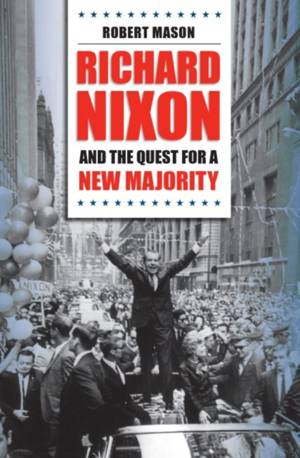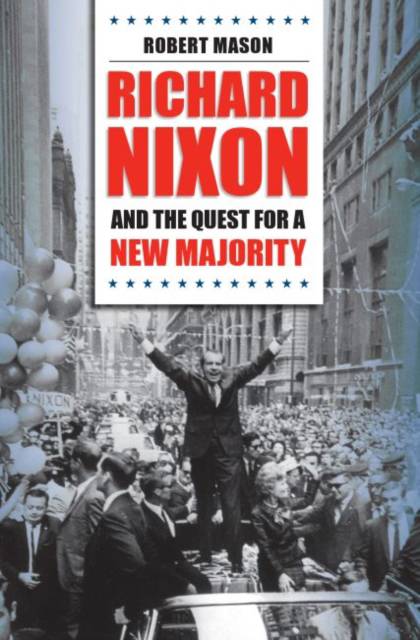
- Afhalen na 1 uur in een winkel met voorraad
- Gratis thuislevering in België vanaf € 30
- Ruim aanbod met 7 miljoen producten
- Afhalen na 1 uur in een winkel met voorraad
- Gratis thuislevering in België vanaf € 30
- Ruim aanbod met 7 miljoen producten
Omschrijving
In recent years historians have paid substantial attention to the origins of modern political conservatism and the record of the Nixon administration in building a Republican majority in the late twentieth century. In Richard Nixon and the Quest for a New Majority, Robert Mason analyzes Nixon's response to the developing conservative climate and challenges revisionist claims about the activist nature of the Nixon administration. Nixon was an activist in intent, Mason contends, but not in deed.
Nixon's "silent majority" speech of 1969 not only undermined the growth of the antiwar movement, Mason shows, but also identified a constituency for Nixon to cultivate in order to secure reelection. However, the implementation of his new-majority project was hindered by the resort to dirty tricks against political opponents and the ineffectual pursuit of a policy agenda. Although some Nixon initiatives were enacted, says Mason, they were not substantial enough to rival the Democrats' bread-and-butter issues. While Nixon built Republican strength at the presidential level, Mason argues that he did not succeed in mobilizing popular support for broad-based political conservatism.
Specificaties
Betrokkenen
- Auteur(s):
- Uitgeverij:
Inhoud
- Aantal bladzijden:
- 304
- Taal:
- Engels
Eigenschappen
- Productcode (EAN):
- 9781469614939
- Verschijningsdatum:
- 1/03/2014
- Uitvoering:
- Paperback
- Formaat:
- Trade paperback (VS)
- Afmetingen:
- 156 mm x 234 mm
- Gewicht:
- 467 g

Alleen bij Standaard Boekhandel
Beoordelingen
We publiceren alleen reviews die voldoen aan de voorwaarden voor reviews. Bekijk onze voorwaarden voor reviews.








